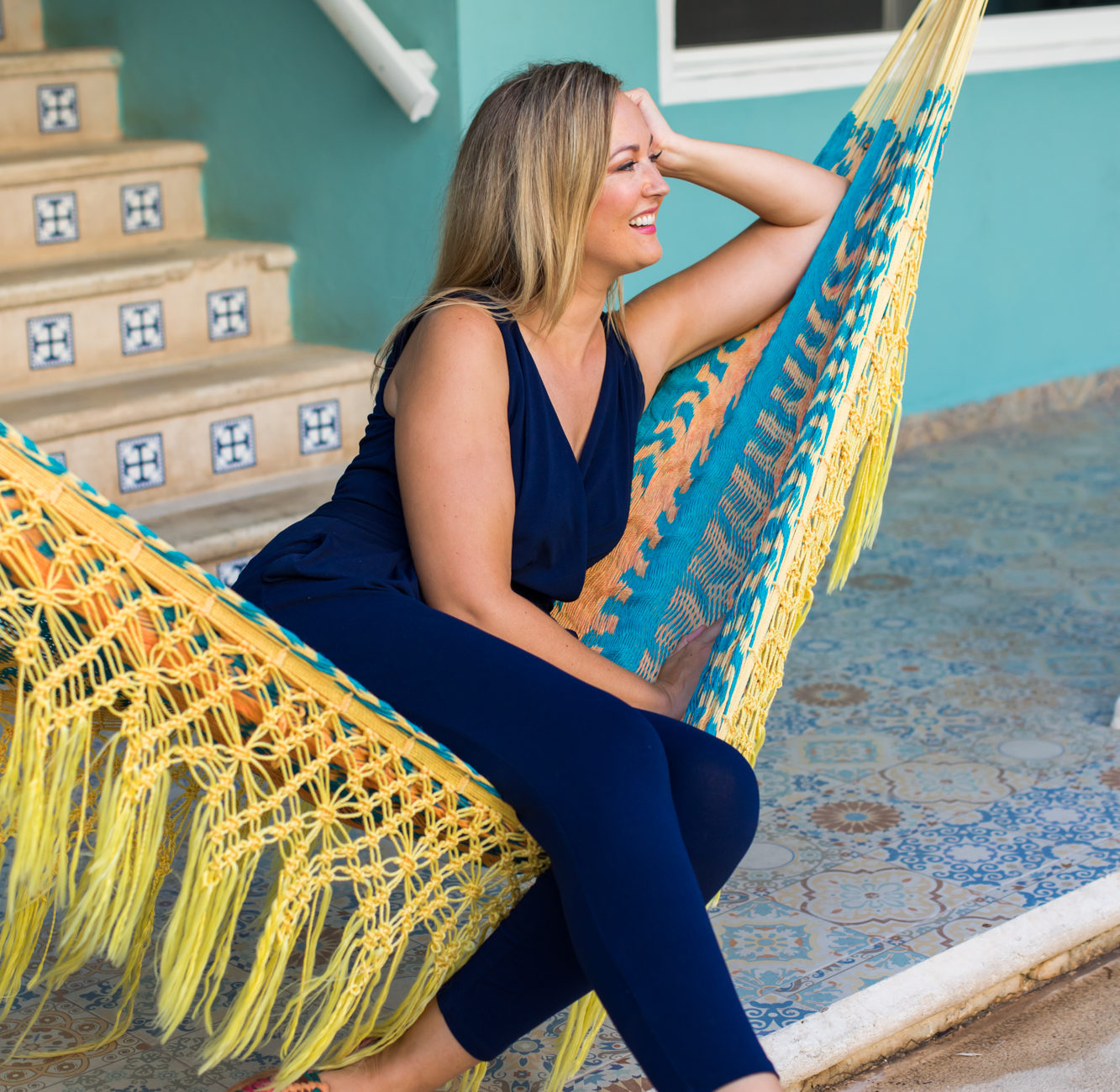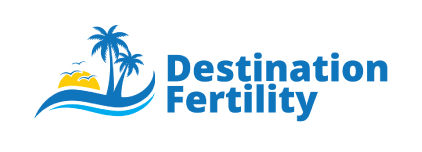Many women are considering egg freezing for very personal reasons but are left wondering … What’s the best age to freeze my eggs?
The answer to this question is highly dependent on a women’s individual health, egg quality and quantity.
My name is Stephanie and I froze my eggs a little over a year ago. I get asked about the optimal age to freeze your eggs by my 30-something year old friends quite often. So I wanted to share some of the things I learned during the process, and why I decided to freeze my eggs at 31 years old.
First, I think it’s important to talk about some of the science behind egg freezing that I learned while undergoing the process.

Women Are Born With All The Eggs They’ll Ever Have
Let that sink in. Unlike men who regenerate sperm approximately every 70 – 75 days, women are born with all the eggs they will ever have. In your mother’s womb during your fetal life, women have 6 – 7 million eggs. But as quickly as birth, this is reduced to approximately 1 million eggs. The amount of eggs continues to decline through puberty where only 300,000 – 400,000 eggs remain. And even within this large number, only 300 – 400 eggs will be ovulated.
Phew! That was a lot of numbers.
These numbers continuously drop until there are so few eggs that a woman reaches menopause. So over a woman’s reproductive age, the quantity and quality of eggs (like everything on our bodies) decreases. In order to preserve fertility at an optimal time, women often turn to egg freezing.
It works like this – if I freeze my eggs at 30 years old and decide to use them at 40, my chances of a live birth will be that of a 30 year old, even if I use them at 40. And since there’s a sharp decline in pregnancy rates and egg quality in our late 30s and 40s, it’s best to freeze eggs before this decline begins.
Technically a woman is most fertile in her early to mid-20s. However, it doesn’t necessarily make sense from a cost benefit perspective to freeze eggs that early. That’s because the likelihood of meeting a partner and conceiving naturally is very high, therefore the likelihood of not using the frozen eggs is also high. In addition, annual storage costs of the eggs can range from $300 – $1000 dollars a year. This adds up if you store eggs for 8 – 10+ years and then don’t use them. However, if you freeze eggs at 35 and use them at 38, the 3 years of storage fees will have been well worth it.

Since the reduced rate of pregnancy happens throughout a woman’s 30s, I often recommend to my friends that if you have the financial means, the optimal age to freeze is late 20s or early 30s. If you are older than 35, it is still recommended to freeze your eggs if you know you want a child and do not have a partner. These are general ranges. But, I always tell my friends that they should first get a fertility check-up to understand where their individual hormone levels are.
Fertility Tests For Females
First, you’ll want to make sure that you are getting preliminary testing done at a Reproductive Endocrinologist’s (RE) clinic. Reproductive Endocrinology is a subspecialty of Obstetrics and Gynecology. After an OB/GYN doctor completes their residency, they complete three more years of fellowship training to learn solely about the female reproductive system before being certified as an RE. I mention this specifically because I realize how few of my friends were even aware this subspecialty exists.
While you can get some tests done at your OB/GYN office, a Reproductive Endocrinologist is the best person to speak with if you want the best snapshot and opinion. You can also ask your OB/GYN for a referral or fill out a contact form if you’d like Dr. Joseph Davis, a Reproductive Endocrinologist and founder of this site, to answer some of your questions.
Once an appointment is scheduled you’ll do the actual testing. This will allow you to better understand your individual situation. There are five main things that will be measured.
- AFC – Antral Follicle Count
- An AFC count is taken by vaginal ultrasound. An ultrasound tech, provider or physician looks to see how many follicles are growing on each ovary. This number predicts how many eggs can successfully be retrieved using fertility medications. The more eggs retrieved, the greater the odds of having an embryo and therefore a baby in the future, when you are ready of course. The number of follicles grown on each ovary can vary each month. Ideally, 10 – 30 follicles is the optimal range. However, successful egg harvests have been done when the number of follicles is less or greater than this range (bearing in mind your age is a very, very important variable).
- AMH – Anti-Mullerian Hormone
- AMH is a blood test and the level provides a marker for ovarian reserve. Ovarian reserve is a fancy word for egg count. AMH provides an insight into how many eggs you have left. In general, a higher AMH indicates a better ovarian reserve while a lower AMH indicates less eggs remain (relative to your age). If it is in a lower range in relation to your age, this may be a time to consider egg freezing. An optimal AMH correlates with age, so it’s different for every woman. This can be reviewed through an initial consult. While many blogs and even some OB/GYNs may say “anything over 1 is a normal level” this is not completely accurate if you are under the age of 40.
- FSH (Follicle Stimulating Hormone) , LH (Luteinizing Hormone) & Estrogen
- The three of these hormone levels are grouped together because they all work in a gentle balance throughout your cycle. When these hormones work well together, a woman likely ovulates normally. If one hormone is off, it can affect a woman’s fertility. Your physician will assess your current numbers as it relates to your chances of a successful egg harvest.
How Much Is Egg Freezing?

Egg Freezing can vary in cost depending on your state, insurance coverage and amount of medications.
On average in the United States, egg freezing ranges from:
$5000 – $10,000 for the procedure
$3000 – $8000 for medications
$300 – $1000 a year for storage (first year is usually included)
= $8000 – $18,000 (Treatment & Medications)
I have lived in large cities like San Francisco, Chicago and New York. Stress factors, busy schedules and the high costs egg freezing are currently reducing some of my friend’s ability to undergo the egg freezing process.
Coverage for egg freezing is increasing as large companies like Facebook & Google are offering coverage. Hopefully this continues to grow in popularity. In addition, clinics are better catering to their patient’s needs and are opening clinics in places where costs can be reduced. Places like Cayman Fertility Centre are able to offer more affordable treatment and medications due to their location.
$4000 – $5000 for the procedure
$1000 – $3000 for medications
$550 for storage (after the first year which is included)
$1500 – $3000 for travel costs (hotels, flights, food)
=$6,500 – $11,000 (Treatment, Medications & Travel Costs)
This cost is much more manageable, but reading your friends jealous comments on your Insta posts from a tropical island is worth even more than!
You can request additional information from Cayman Fertility Centre by filling out this contact form.
Regardless of the clinic you choose, egg freezing is a powerful tool and technology that is now available to more women than ever. Although the optimal age to egg freeze is in the late 20s to early 30s, it is often better to freeze then not to freeze. I am very happy with my decision and it’s allowed me to breathe a huge sigh of relief knowing I have 10 31 year old eggs on ice.
Sincerely,
Stephanie

